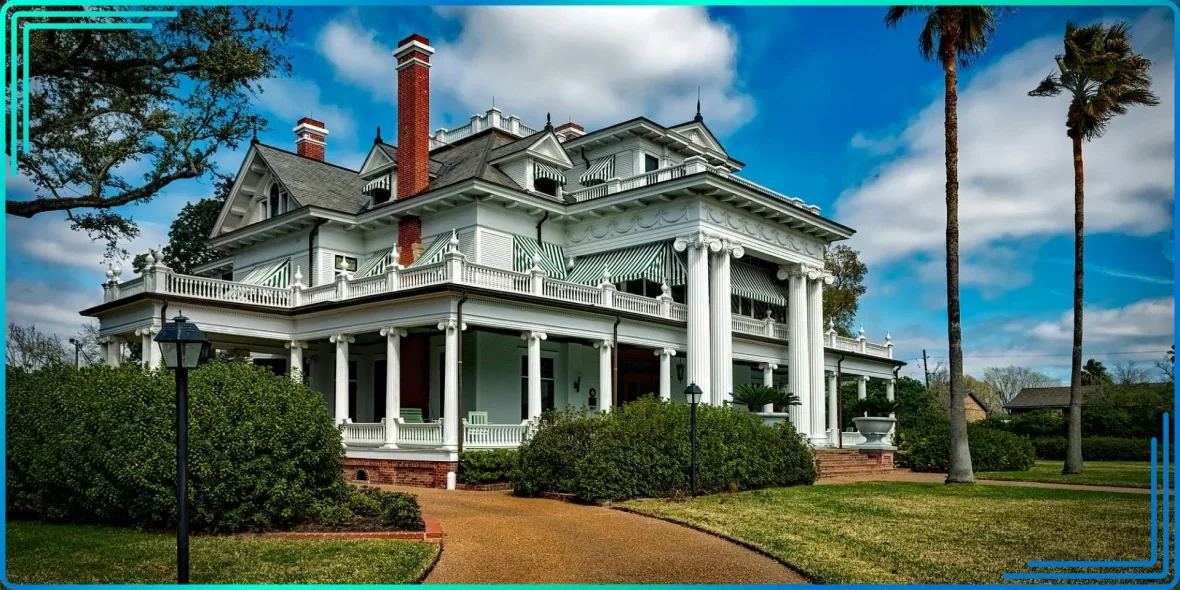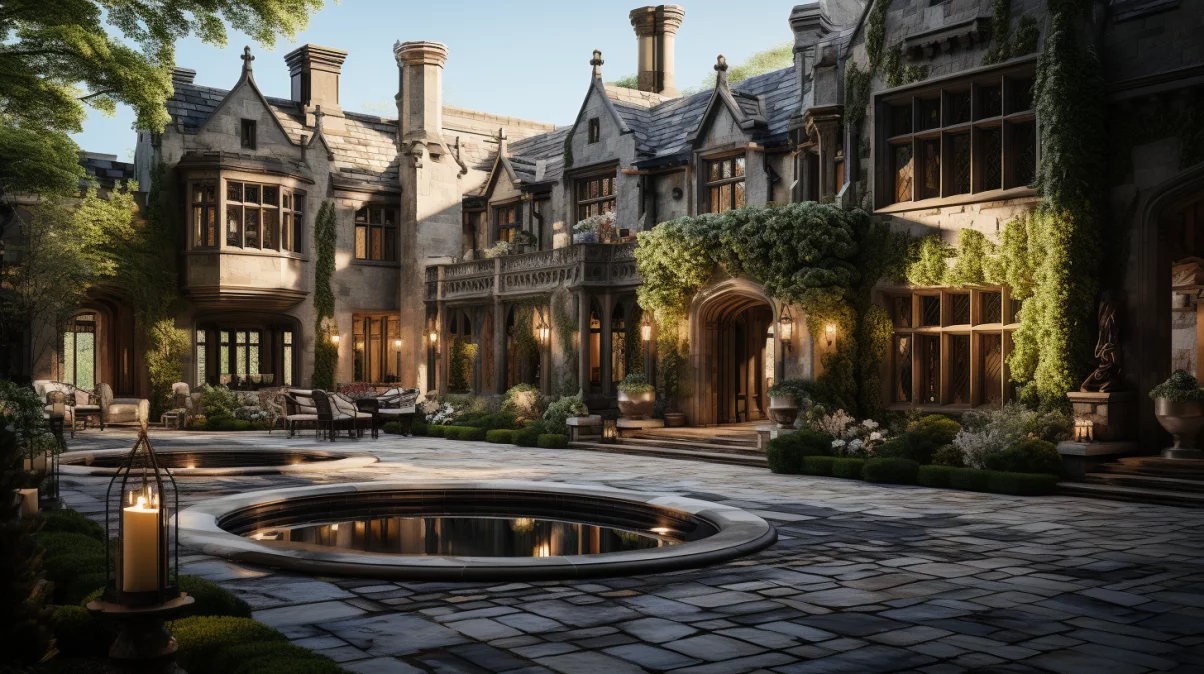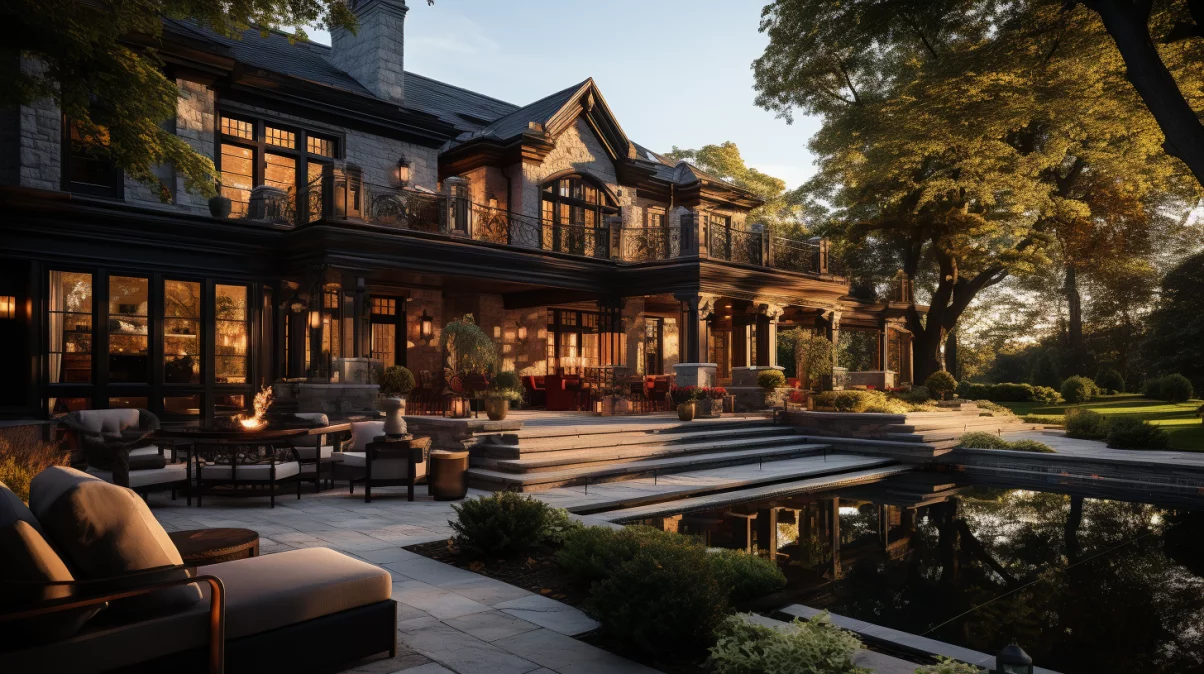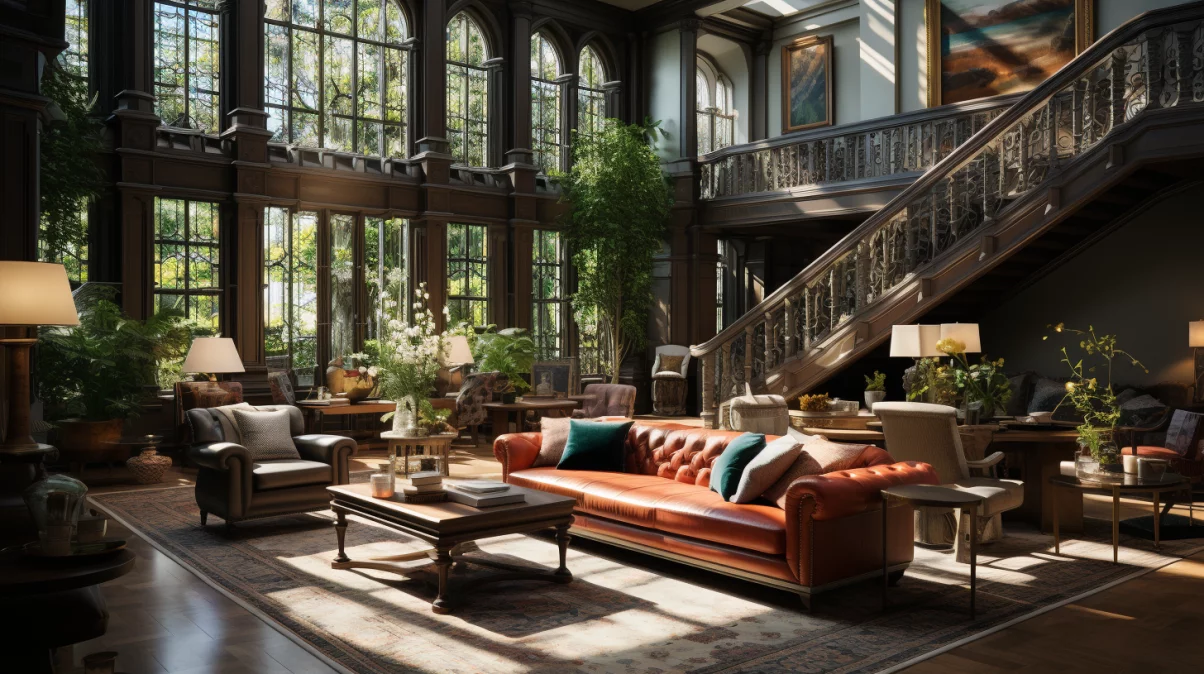
A mansion: what it is and what to consider when buying one
Mansions have always been a symbol of luxury and high status. They are large and impressive homes that provide comfort and privacy, as well as being the epitome of architectural excellence and wealth. In this article, we will discuss the appeal of mansions and their importance in today's real estate world.
What is a mansion?
A mansion is a large and impressive home that often symbolizes wealth and social status. Historically, mansions were luxurious estates owned by the aristocracy or wealthy elite, with exquisite designs and expansive grounds. Today, the term includes modern upscale residences that offer luxurious living spaces, advanced amenities, and a touch of historic charm.
Mansions have a rich history dating back to ancient times. They were originally large estates with vast lands, symbolizing power and prestige. Over time, they have been transformed to reflect the architectural styles and social norms of each era. Today's mansions combine traditional elegance with modern luxury, offering everything from smart home technology to eco-friendly designs.
The location of a mansion plays a key role in its value and prestige. Mansions located in prestigious areas, such as city centers or picturesque coastal areas, tend to cost more. In addition, these homes are often close to social and cultural life, making them even more attractive to buyers.

Buying a mansion: tips
Before deciding to purchase a mansion, it is important to research the real estate market well in this category. This includes studying current trends in the market, understanding fluctuations in luxury real estate prices, and identifying a preferred location. Buyers should be aware of global and local factors affecting the luxury mansion market.
One of the important aspects of buying a mansion is budgeting. This includes not only the purchase price but also ongoing maintenance costs, property taxes, insurance, and possible renovation costs. Consulting with a financial advisor specializing in luxury real estate can help with effective financial planning for such a significant investment.
Location is a key factor when choosing a luxury mansion. Whether it's a beach property, a historic rural estate, or a sophisticated urban mansion, location has a significant impact on value and lifestyle. Buyers should consider their preferences, the type of community they want to live in, and whether the location fits their lifestyle.
Mansions offer a variety of architectural styles, each with its own unique aesthetic and historical context. Buyers should consider which architectural styles suit their tastes and how this may affect the property's long-term value. Style choices should reflect the buyer's personal style and consider future resale opportunities.
A thorough inspection and appraisal of a mansion is crucial when buying it. This step ensures that the property is in good condition and helps determine its real value. Buyers should contact experienced professionals who specialize in luxury properties to conduct such an appraisal.
Understanding the legal and regulatory aspects is also important. This includes zoning, property rights, and any specific restrictions for luxury properties. Buyers should work with a real estate attorney specializing in luxury properties to understand these issues.
Finally, working with a reputable real estate agent who specializes in luxury properties can make a big difference. An experienced agent can provide access to exclusive offers, share knowledge of the luxury mansion market, and guide buyers through the complex process of purchasing such a property.

The potential and risks of investing in mansions
Investing in mansions is not only an opportunity to own a luxury property but also a way to invest with potential and risk in mind. Here is a detailed breakdown of the key aspects of the process:
- Mansions are often located in prestigious and historically significant locations, making them a rare and valuable asset.
- Their uniqueness and luxury can lead to a significant increase in value over time, especially for rare or historically significant properties.
- Investments in mansions in prestigious neighborhoods often offer stable and steady increases in value over the long term.
- Mansions in picturesque and exclusive locations tend to maintain their value and even increase in value, unlike standard residential real estate.
- Investing in mansions carries risks, including potential depreciation due to changes in market conditions or deterioration of the property.
- The need for significant investment in maintenance and repairs may affect the overall return on investment.
- The market value of mansions can fluctuate widely depending on economic conditions, government regulations, and changes in buyer preferences.
- It is important to monitor market trends and economic indicators to determine the best time to buy or sell such real estate.
- Selling a mansion can take a significant amount of time due to the high cost and specific range of potential buyers.
- Investors should consider this factor when planning their financial flows and investment strategy.
- The rental of mansions can become an additional source of income, especially in popular tourist destinations or in cities with high demand for luxury housing.
- It is necessary to take into account the specifics of the luxury real estate rental market, including high standards of service and property management.
Investing in mansions requires a thorough understanding of the market, careful analysis, and strategic planning. If approached correctly, it can offer significant benefits, but it also carries certain risks that need to be considered.

The Future of Mansion Homes
The future of mansion real estate is focused on integrating sustainability and smart technology. Eco-friendly mansions with renewable energy sources and sustainable materials are becoming increasingly popular. The integration of smart home technology is also becoming increasingly important, changing the way residents interact with their homes.
Mansions continue to be an important part of the real estate market due to their uniqueness, historical significance, and luxury. They represent not only housing but also an expression of style, prestige, and cultural heritage. In the future, it is expected that interest in mansions will continue to grow, especially in light of new technologies and real estate trends.








